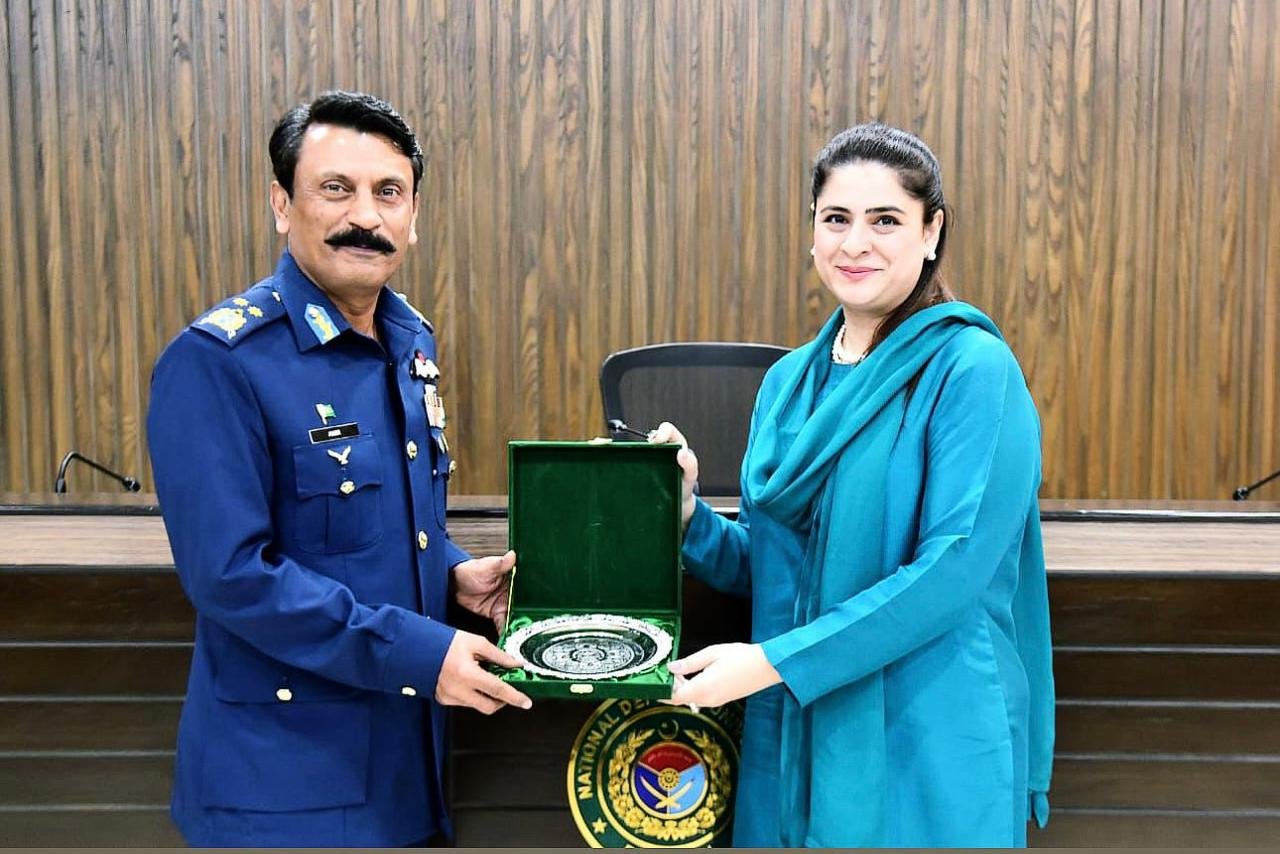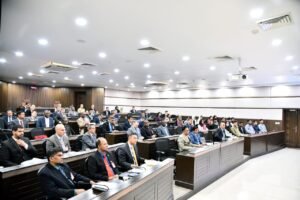
ISLAMABAD – Chairperson of the Child Protection and Welfare Bureau Punjab, Sarah Ahmad, delivered an impactful lecture at the National Defence University (NDU), Islamabad, on October 24, 2025 — marking her second invitation to the prestigious military institution. Addressing senior military officers from twenty-six different countries, she spoke on “Child Protection in Pakistan: Safeguarding the Future through Human Security and Institutional Resilience,” drawing a compelling connection between child protection and national security.
In her forty-minute address followed by an interactive twenty-minute question-and-answer session, Sarah Ahmad underscored that the protection and welfare of children should not be viewed merely as a social welfare concern, but as a central pillar of statecraft and national resilience. “When a child is neglected, exploited or abused, society loses not only an individual but a potential citizen, worker, innovator, and peacemaker,” she stated. “Protecting children is not charity — it is nation-building.”

She began by situating child protection within the broader global human rights framework, referencing Pakistan’s early ratification of the 1989 United Nations Convention on the Rights of the Child. She explained that the UNCRC’s core principles — non-discrimination, best interests of the child, survival and development, and participation — remain the backbone of modern child protection systems. Linking global priorities to Pakistan’s commitments under the Sustainable Development Goals, particularly SDG-16 and SDG-17, she emphasised that the security of children is inseparable from human security in an increasingly interconnected world threatened by trafficking, online exploitation, and displacement.
Highlighting Pakistan’s demographic landscape, Sarah noted that nearly 35 percent of the country’s population is under eighteen. She detailed the progress made through a comprehensive legislative and institutional framework, including Article 25-A of the Constitution guaranteeing free education, the Juvenile Justice System Act 2018, the National Commission on the Rights of the Child, and provincial child protection laws such as the Punjab Destitute and Neglected Children Act. However, she candidly pointed out persistent challenges — child labour, trafficking, early marriage, and digital abuse — warning that these were not merely moral or legal problems but threats to social cohesion and stability.
She further delved into the issue of violence against children, revealing that over eighty percent of South Asian children experience some form of corporal punishment, while thousands face sexual abuse annually — most cases remaining unreported due to stigma and lack of trust in institutions. Sarah identified root causes including poverty, displacement, cultural taboos, and weak enforcement, arguing that the long-term consequences of neglect extend to lost productivity, civic disengagement, and vulnerability to exploitation by criminal or extremist networks.
Citing the Punjab Child Protection and Welfare Bureau as a model of excellence, she outlined its three-tiered approach of rescue, rehabilitation, and reintegration. “Each year, we rescue and rehabilitate over ten thousand children across the province,” she said, describing the Bureau’s network of protection units linked with police stations, courts, and district administrations. She elaborated on the 24-hour rescue hotlines, medical and psychological support, education within shelters, and vocational programmes that empower children to reintegrate into society with dignity. A short documentary screened during the session showcased real stories of rescued children, highlighting institutional resilience and human transformation.
Sarah also described the Bureau’s preventive initiatives, including “Good Touch, Bad Touch” awareness sessions in schools, training programmes for teachers, police, and social workers, and outreach campaigns involving religious leaders and local communities. She stressed that “rescue alone is not enough,” advocating a preventive, society-wide culture of protection where every citizen acts as a guardian of children’s rights.
Moving into the strategic dimension of her lecture, Sarah drew a direct link between child protection and national security. “Unprotected children are vulnerable to recruitment by criminal networks and extremist groups,” she warned. “Economic neglect of children has long-term costs — each year of lost education erodes national productivity.” She urged that defence institutions, with their structure and reach, can play a transformative role through awareness campaigns, mentorship programmes, and coordination in disaster and conflict zones. Her message was clear: a nation cannot be secure if its children are unsafe.
In her concluding remarks, Sarah Ahmad described child protection as an “investment in peace,” asserting that the moral and security fabric of any nation depends on how it treats its most vulnerable. “Every child we protect, every parent we educate, strengthens the foundation of our nation,” she said, adding that Punjab’s experience shows how empathy and governance can yield extraordinary outcomes even with limited resources. The lecture ended with applause from participants, many of whom expressed appreciation for Pakistan’s progress in institutionalising child protection as part of its broader human security agenda.
Sarah Ahmad’s second invitation to NDU underscores growing recognition of her leadership in transforming Punjab’s Child Protection Bureau into a regional model of reform and resilience. Her lecture reaffirmed that protecting children is not only a moral duty, but a strategic necessity — one that ensures Pakistan’s future generations grow in safety, dignity, and hope.








